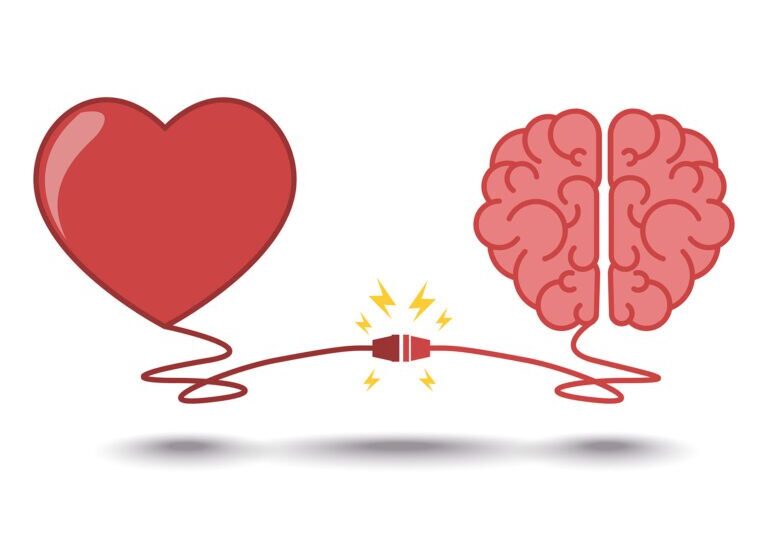Neural Networks and Quranic Concepts of Heart and Mind
In our rapidly advancing scientific age, the mysteries of the brain are being unlocked through groundbreaking research in artificial intelligence—particularly neural networks. Interestingly, the Quran speaks deeply about the “heart” (qalb) and the “mind” (aql), often emphasizing their spiritual and cognitive functions. This article draws a connection between modern neural networks and Quranic concepts of the heart and mind, exploring how ancient wisdom and modern science intersect in profound ways.
Understanding Neural Networks
What Are Neural Networks?
Neural networks are computer systems inspired by the human brain’s network of neurons. They are designed to recognize patterns and make decisions by simulating human thought processes.
How They Function
Artificial neural networks consist of input layers, hidden layers, and output layers. Information flows through these layers, and with each pass, the system learns and refines its output.
Real-Life Applications
Neural networks are used in everything from image recognition and natural language processing to self-driving cars and personalized medicine.
The Heart in the Quran
More Than a Physical Organ
In the Quran, the heart (qalb) is often described as a center of understanding and consciousness—not just a pump for blood. Verses refer to the heart’s role in belief, reflection, and guidance.
Verses Highlighting the Heart
Examples include:
-
“They have hearts with which they do not understand” (Surah Al-A’raf 7:179).
-
“Indeed, in that is a reminder for whoever has a heart” (Surah Qaf 50:37).
Symbolic and Spiritual Role
The heart is seen as the seat of intention, purity, and moral consciousness. A hardened heart signifies ignorance, while a soft heart is receptive to divine truth.
Quranic Perspective on the Mind
Role of ‘Aql (Intellect)
The Quran encourages deep thinking and reflection. Intellect is a divine gift and a means to recognize truth.
Encouragement to Reflect
Phrases like “Do they not reflect?” or “Will you not use your intellect?” are frequent throughout the Quran, promoting analytical and critical thought.
Limitations of Human Reason
While intellect is praised, the Quran also acknowledges its limits, reminding humans that full knowledge belongs to Allah alone.
Cognitive Processes in Neural Systems
Learning and Adaptation
Just like the human brain, neural networks learn through repetition and feedback. This mirrors the human learning process emphasized in Quranic stories and parables.
Memory and Storage
Neural systems, both biological and artificial, rely on memory retention. In the Quran, remembrance (dhikr) is a recurring theme, showing the value of recalling divine teachings.
Decision-Making Models
Artificial intelligence models simulate decision-making processes based on logic and data. The Quran emphasizes making decisions with justice, wisdom, and moral clarity.
Similarities Between AI and Human Thought
-
Both neural networks and the human mind work through pattern recognition and experience-based learning.
-
Quranic verses often reference learning from past events, akin to data training in AI systems.
-
AI networks improve through correction, much like humans learn through reflection and repentance.
-
Just as neural networks need calibration, the Quran urges self-examination and spiritual correction.
Symbolism of the Heart and Neural Functions
-
The heart, as described in the Quran, reflects a higher level of cognition—similar to the central processing role in neural systems.
-
Emotion and intention, both seated in the human heart, play a role in AI ethics and modeling human-like responses.
-
The Quran links the heart to vision and understanding, just as neural networks are used in visual processing and comprehension tasks.
-
A “sealed heart” in the Quran is analogous to blocked or biased neural pathways, which prevent learning and growth.
Human and Artificial Consciousness
-
The Quran distinguishes humans by their moral agency and ability to make conscious choices, a level AI has not achieved.
-
Consciousness in humans is spiritual and holistic, while AI remains task-oriented and mechanical.
-
The soul (nafs) gives humans their depth and purpose—something machines do not possess.
-
Awareness in the Quran involves both intellect and heart, unlike AI, which lacks emotional and moral dimensions.
Ethical Use of AI in Light of Quranic Teachings
-
Quranic principles encourage using knowledge for good and avoiding harm.
-
Neural networks should be used in ways that respect privacy, fairness, and human dignity.
-
The concept of intention (niyyah) in Islam can guide responsible AI development.
-
Islamic ethics emphasizes justice and compassion, crucial in developing AI that benefits humanity.
Conclusion
The Quran’s depiction of the heart and intellect aligns in fascinating ways with how neural networks function in modern science. Both stress learning, reflection, and decision-making—though one is rooted in spirituality and divine wisdom, and the other in algorithms and data. This blend of traditional insight and technological advancement opens new doors for understanding the human condition.
At Muhammadan Quran School, we provide comprehensive online Quran classes for kids and adults, integrating classical Islamic knowledge with thoughtful, modern instruction. Begin your spiritual journey with us and explore how timeless truths can meet today’s evolving world.



